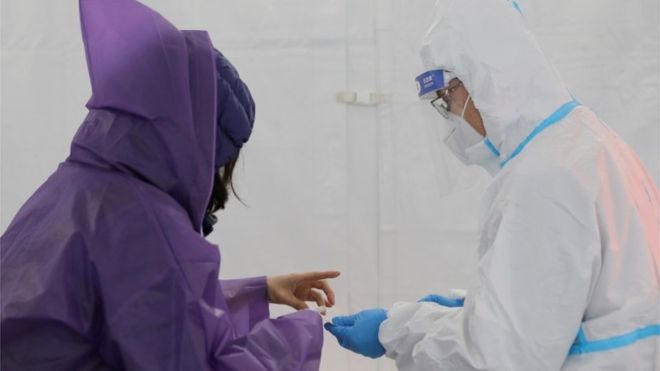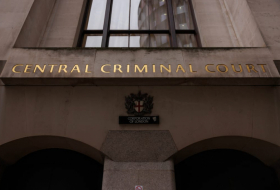Governments should not issue so-called "immunity passports" or "risk-free certificates" as a way of easing lockdowns, the World Health Organization (WHO) says.
It said there was "no evidence" that people who had developed antibodies after recovering from the virus were protected against a second infection.
Such a move could actually increase virus transmission, it warned.
People who assumed they were immune might stop taking precautions, it said.
Some governments have considered permitting people who have recovered to travel or return to work.
Restrictions imposed on movement to stop the virus spreading have crippled economies around the world.
More than 2.8m cases of the virus have been confirmed worldwide and nearly 200,000 people have died.
What did the WHO say?
"There is currently no evidence that people who have recovered from Covid-19 and have antibodies are protected from a second infection," the WHO said in a briefing note.
Most studies carried out so far showed that people who had recovered from infection had antibodies in their blood - but some of these people had very low levels of antibodies.
This suggested that another part of the body's immune response - T-cells, which eliminate infected cells - may also be "critical" for recovery.
As of Friday, no study had evaluated whether the presence of antibodies to the virus conferred immunity to subsequent infection by the virus in humans, the WHO said.
"At this point in the pandemic, there is not enough evidence about the effectiveness of antibody-mediated immunity to guarantee the accuracy of an 'immunity passport' or 'risk-free certificate'," it said.
The organisation also said laboratory tests to detect antibodies needed further validation to determine their accuracy and also needed to distinguish between the previous infection by the SARS-CoV-2 virus - which has caused the pandemic - and the six other known coronaviruses in circulation.
BBC
More about: Coronavirus
















































